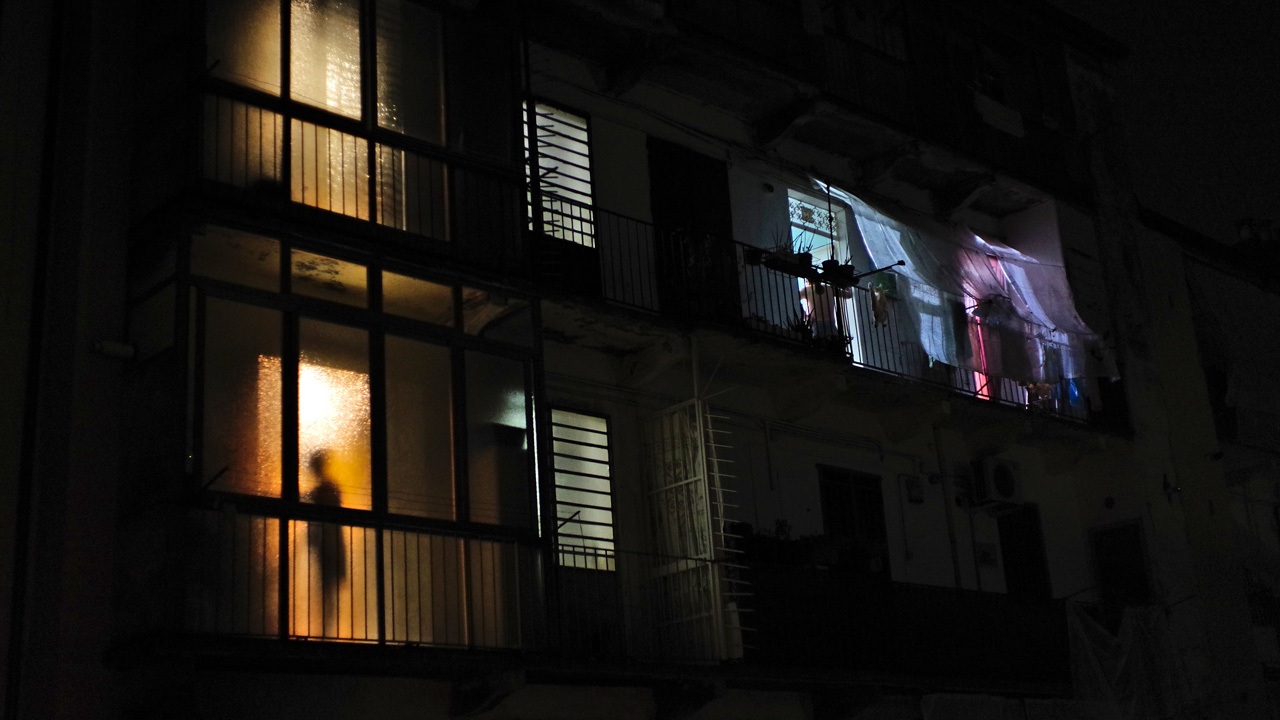
RATIONALE
Three interlocking processes are redefining what it means to inhabit the planet and its cities:
- Rising and expansive urbanisation (+2.8 billion people living in cities by 2050 according to UNHABITAT)
- The widespread unequal access to decent and secure dwellings (1.6 billion people currently living in inadequate housing, and millions violently evicted every year around the globe)
- The response of local communities in the face of these processes, through struggles that often intersect racial and gender injustice, violent bordering practices, climate change and its management, and other paradigmatic challenges of our time.
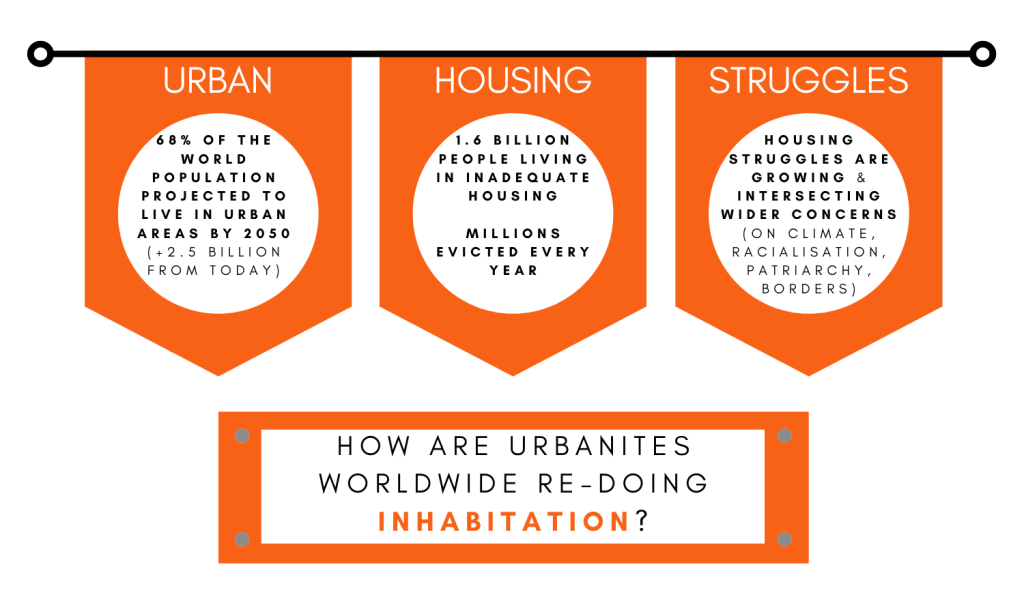
The Beyond Inhabitation Lab is situated at the intersection of these processes, and asks: how are urbanites worldwide re-envisioning and re-doing inhabitation through their mundane struggle to endure historical and contemporary forms of dispossession?
The scope of the Lab is global – it provides an infrastructure for expansive and asynchronous conversations to emerge – but at the same time, it refutes the idea of a unifying theory of inhabitation, instead searching for multi-layered narrations and their propositional politics of urban life.
Ultimately, the goal is neither to inform policy nor to provide diagrammatic solutions, but to accrue our collective capacity of thinking about urban inhabitation critically and beyond itself, through in-situ and online exchanges, academic and non-academic interventions, as well as by strategically making use of the epistemic privilege at hand.
THEMES
We loosely organise our collective work around three thematic areas and two transversal concerns.
Inhabitation from the every day of citylife. The intersection of embodied experiences, colonial, racial and gendered histories, political economies and ecologies, and translocal assemblages that are making up what it means to be alive and to be ‘human’ in today’s urban world. But also, enquiries around “complete urbanisation” that imagines and attempts to make anywhere as anything, regardless of situatedness, history and local realities, even as these imaginaries are never fully actualised.
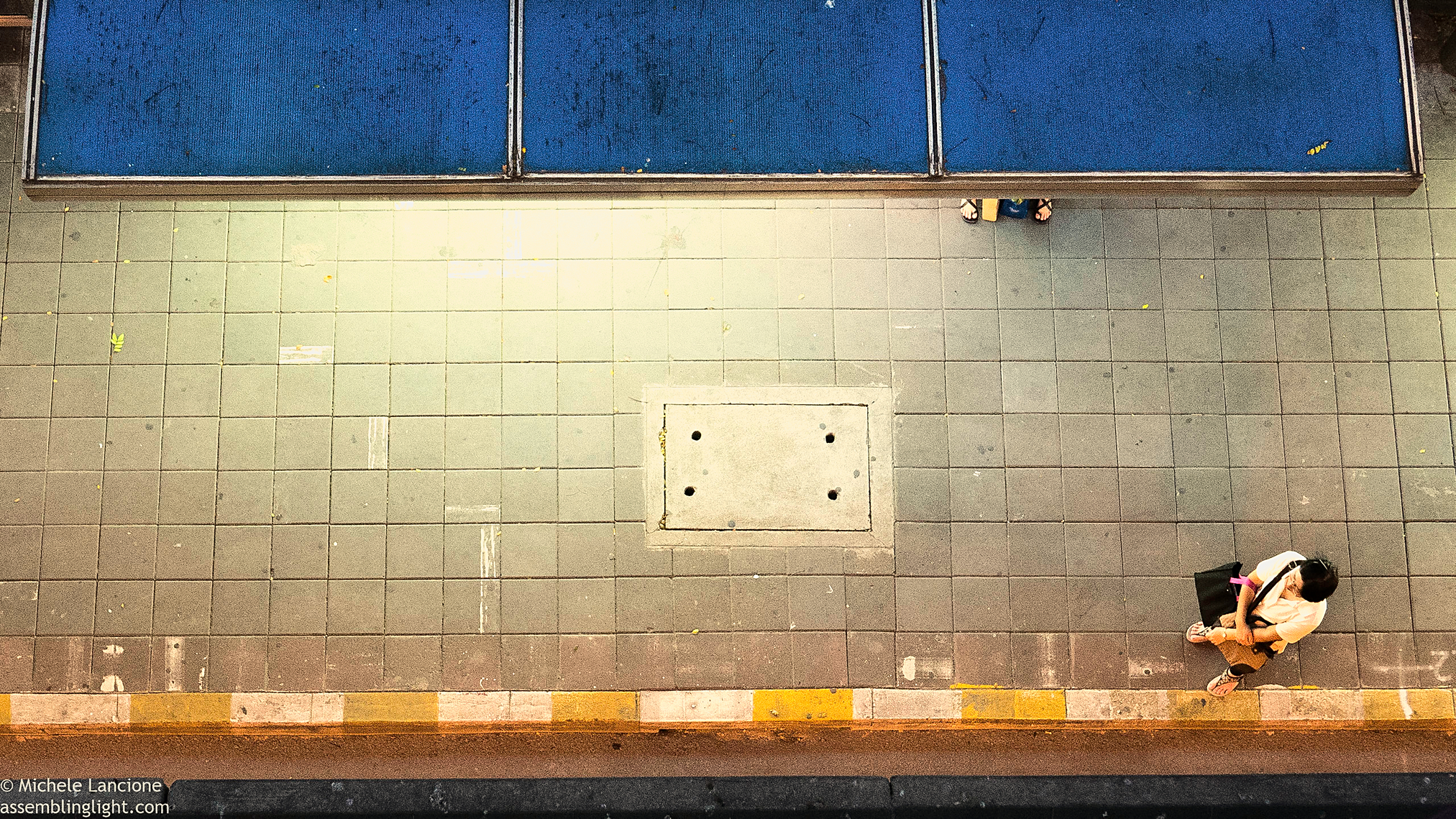
Inhabitation from the gateway of housing precarity and its struggles. The intersection of violent forms for dispossession related to lands and to bodies, financialised multi-scalar assemblages, criminalisation of houselessness and the question of how to organise beyond the given conditions of ‘radical politics’ when housing meets migrations and the liminal. A particular emphasis revolves around notions of intersectionality, racialised housing precarity, and the Black Mediterranean.
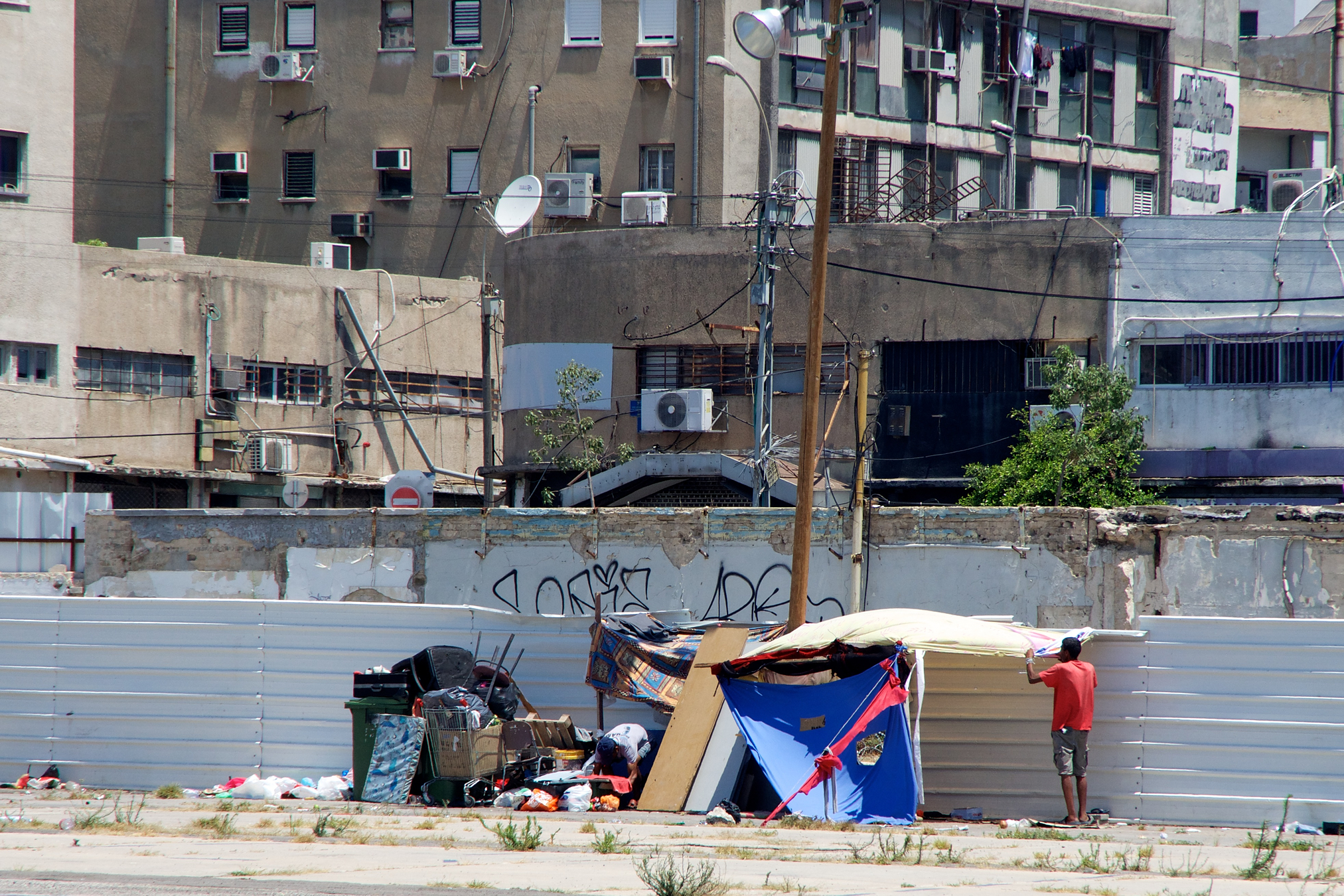
Inhabitation as an emancipatory proposition from the ground of its struggle. The intersection of local organising with more prosaic forms of housing endurance from established collectives but also from individual’s affirmations that struggle to become collective, having to do with reverberations across multiples economies of life, redefining the ‘political’ from within. Attention is spent from those forms of liberations that are not conceived to be ‘political struggle’ by Western ‘radical’ canons.
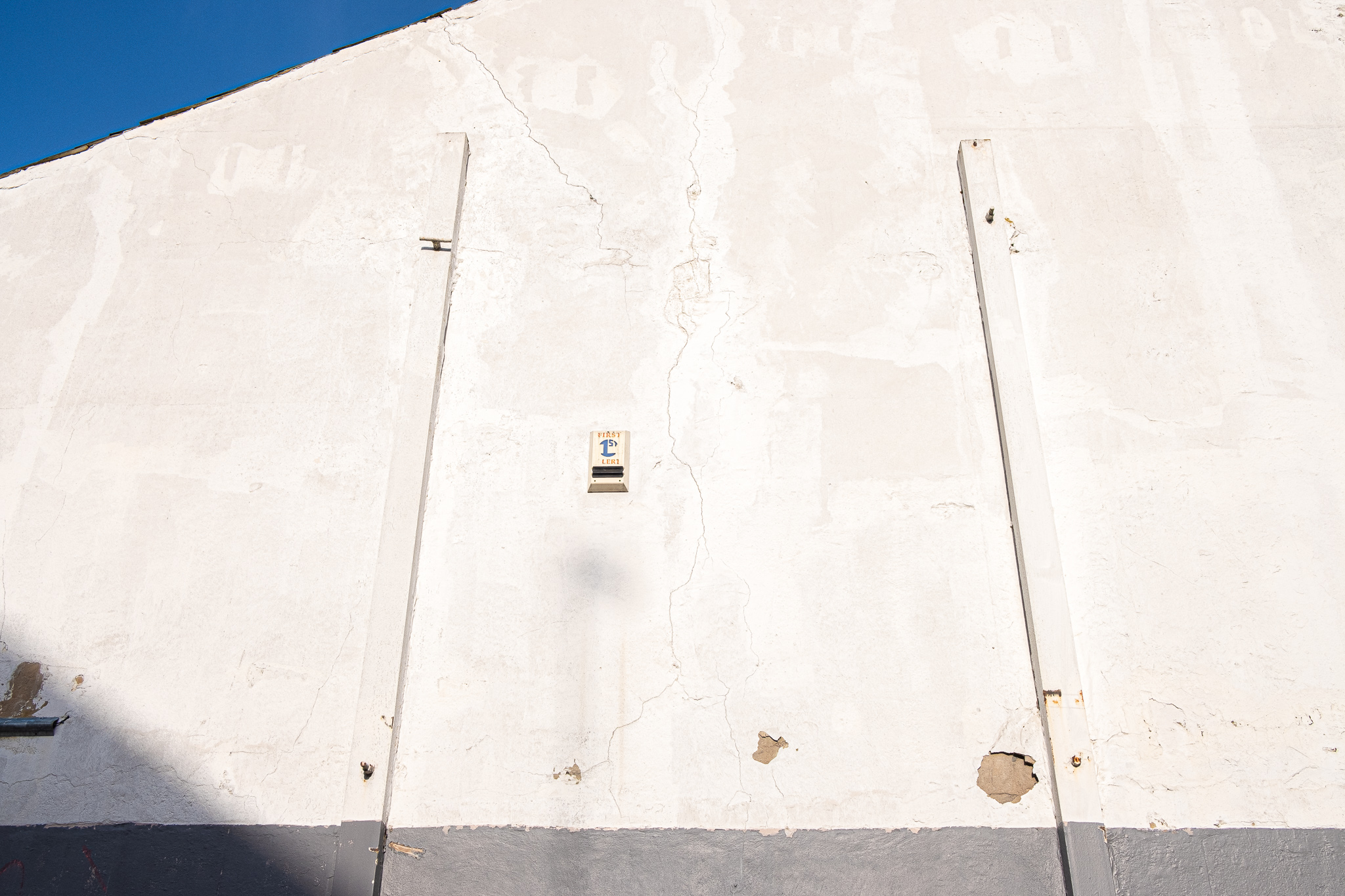
We are also interested in exploring two transversal areas of concern:
- Methodologies of representation: How can we represent urban conflict and the uneven urban development underpinning it in non-extractive and meaningful ways for those involved in localised struggles? This cutaway explores mapping methods, the critical use of statistical data, and creative visual methodologies at large.
- Undercommon praxis: How can members of this Lab use our epistemic and institutional privilege to instantiate a non-extractive and redistributive praxis of research and action on housing justice? This cutaway opens ways to use the Lab’s resources to sustain radical scholarship and engagement with activists and organisers.
